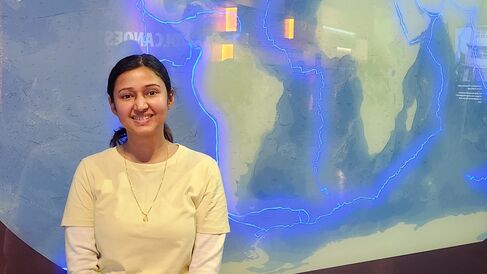About Surbhi Goel

I'm Surbhi Goel, part of the Institute of Computing for Climate Sciences (ICCS) team as a Research Software Engineer. In my job, I use AI and machine learning to study climate processes and predict future scenarios to help communities prepare for climate change impacts.
Career journey
My journey started at the University of Manchester, where I got my degree in Renewable Energy and Clean Technology in 2017. I've always cared about protecting the environment, and this degree gave me a solid foundation. After graduating, I had the chance to work with some cool startups, where I worked on creating and maintaining machine learning models for predicting electricity demand and solar power production.
But I wanted to make an even bigger difference, so I decided to do a Master's in AI for Sustainable Development at the University College London (UCL). This experience not only improved my skills but also helped me understand how important AI is for sustainability and fighting the effects of climate change. Every day, I'm inspired by the progress in my field. Our work is really important, and I'm committed to doing my part to address the climate crisis.
My hobbies
In my free time, I love watching exciting sci-fi stuff, and I'm a big fan of documentaries about ancient civilisations, outer space, and wildlife. I find peace in doing yoga and exploring food and nutrition science. Cooking is like therapy for me, especially when I'm making meals for my loved ones.
As someone who first got interested in climate science after watching The Day After Tomorrow, I can honestly say that dreams can come true. Joining the ICCS team is a dream come true, and I'm looking forward to working together to make a positive impact on our environment. Let's team up and create a more sustainable future!
